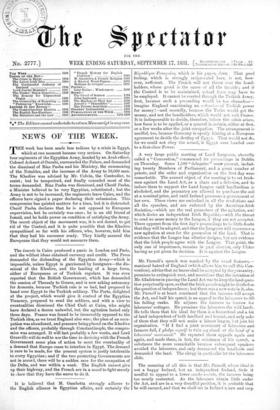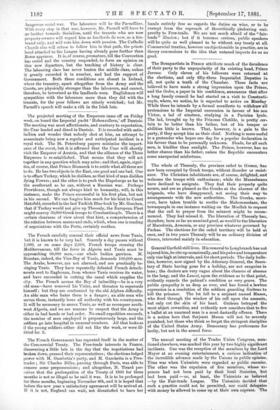The meaning of all this is that Mr. Parnell, whose
ideal is not a happy Ireland, but an independent Ireland, finds it needful to appeal to a lower couche sociale, the farmers being. too nearly contented. As the labourers obtain little under the Act, and are in a very dreadful position, it is probable that he will succeed, and that we shall see in Ireland a new and very
dangerous social war. The labourers will be the Parnellites. With every step in that war, however, Mr. Parnell will have to go farther towards Socialism, until the tenants who are now property-owners will regard him as landlords do now, as a fire- brand only, and will vote him down with passion. The Catholic Church also will refuse to follow him in that path, the priest- hood attached to the League having already gone further than Rome approves. It is, of course, premature, till the Convention has ended and the country responded, to form an opinion on this new departure, but the teaching of history is clear. The labouring class has never beaten the middle class, unless it greatly exceeded it in number, and had the support of Government. Both these conditions are absent in Ireland, where the tenantry, apart altogether from the Army and the Courts, are physically stronger than the labourers, and cannot, therefore, be terrorised as the landlords were. Englishmen will sympathise with the labourers more than they did with the tenants, for the poor fellows are utterly wretched; but Mr. Parnell's speech will make a rift in the Irish late.































